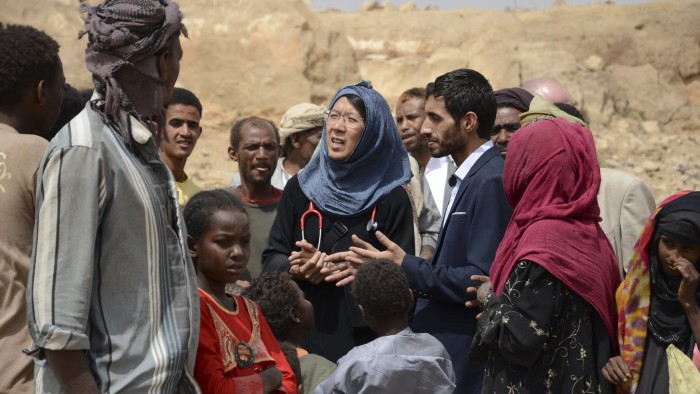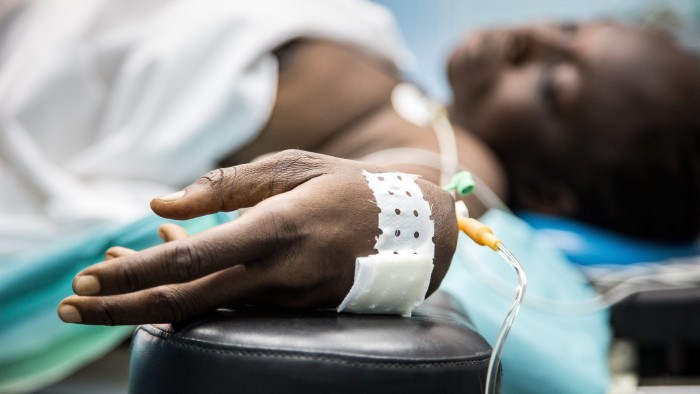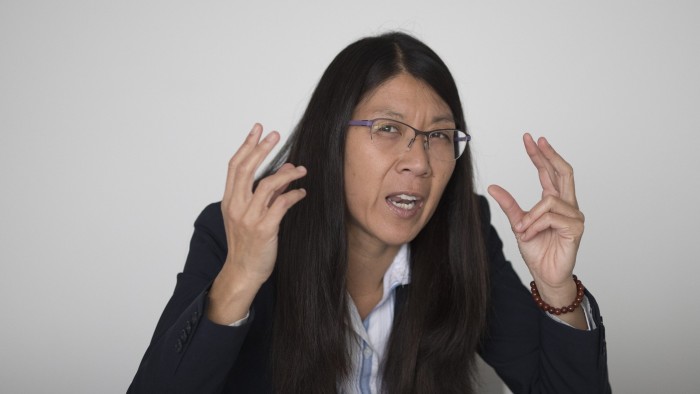‘When it’s time to sleep under the bombs, few of us are there’

Roula Khalaf, Editor of the FT, selects her favourite stories in this weekly newsletter.
Joanne Liu spent two weeks working as a paediatrician in a hospital in Yemen last summer. While she was there she did not sleep well.
“Every night we got bombed,” says Dr Liu, the international president of Médecins Sans Frontières, the Financial Times seasonal appeal partner. “Every night. I came back and I was a wreck.”
Things became a lot worse for the organisation and those it helps three months later, when, in the middle of the night, a US warplane fired more than 200 shells at an MSF hospital in Kunduz, Afghanistan, killing 42 people, including 14 of the medical charity’s employees.
In an interview with the FT, Dr Liu warns that attacks on medical facilities pose not just a mortal threat to MSF staff and patients, but also to the central mission of providing services where other agencies and governments fear to tread.
“When the time comes to cross the checkpoint and sleep under the bombs with our patients, very few of us are there,” says the French-Canadian doctor who has worked for MSF since 1996.
FT Seasonal Appeal 2016

● MSF gives ‘psychological first aid’ to migrants
Team helps desperate arrivals after a harrowing voyage to Sicily
● ‘If we don’t treat them, who else will?’
Erika Solomon talks to MSF staff in Syria, Yemen and Iraq
● Congo: journey to the centre of a typhoid epidemic
David Pilling joins MSF’s team battling the disease in DRC
● A letter from the editor
Lionel Barber introduces this year’s seasonal appeal in support of MSF
Preserving a humanitarian space where doctors can administer to patients without threat or interference “is the core and heart of MSF”, she adds.
“If today MSF loses that very specific space to care for everybody in a neutral and impartial way at the frontline, the world will be losing part of its humanity, part of its commitment to avoid total chaos in the middle of warzones.”
But since the beginning of the year there have been at least 50 attacks on MSF hospitals and MSF-supported facilities in Syria and Yemen.
Despite the passage in May of a UN Security Resolution calling for an end to impunity for such attacks, Dr Liu says “nothing has changed in the field”.
President Barack Obama apologised in person for the Kunduz bombing, but MSF’s demands for an independent investigation were rebuffed. Dr Liu believes the White House failed to show leadership on respect for international humanitarian law: “It wouldn’t have cost them that much to say, we believe in the rules of war and they must be respected.”
She argues that in today’s conflicts — more often than not depicted as a war against terrorists — fear has undermined international law. Medical support for militants is deemed a military asset, making doctors a target.
Worries about admitting potential terrorists has also driven governments to row back on their international obligations to refugees, she adds.

MSF was so incensed by the EU’s handling of the continent’s migration crisis — including a deal with Turkey to prevent refugees from travelling to the EU via Greece — that it decided in June to refuse EU funding worth tens of millions of euros a year. It was a typically forthright stance, although some saw it as grandstanding.
“For me there are no bad or good people fleeing or forced to flee,” says Dr Liu. “Regardless of your motivations, you are entitled to be treated like a human being and with dignity and this is not happening. You are not a criminal because you have fled your country, for whatever reason.”
She recalls visiting a refugee centre in Sicily last year: “One mother looked at me and said, ‘if I had known that every day coming here I would have lost every ounce of dignity that I had, I would have rather died under the bombs in Syria’. I think that is the most powerful sentence I’ve heard.”
MSF’s mission is not just to provide medical care in conflict zones but to “bear witness” to government failings and injustices it identifies around the world. It has given the organisation a reputation for being provocative, anti-establishment, even anarchic.
But Dr Liu, who became MSF’s international president in 2013 and won a second term this year, the first to do so, has taken the group out of its comfort zone.
She acknowledges that the FT “is not a natural match” as MSF’s seasonal partner. Many staff, she adds, would be comfortable with an article in Liberation, the leftwing French daily, but would “be hostile to the FT”.
Dr Liu, who jokes that her organisation “will never forgive” her for going to the World Economic Forum in Davos, says that the Ebola outbreak in west Africa convinced her that MSF needed to work more closely with governments, official bodies and the private sector.

“We were the whistleblower but nobody listened to us for six months,” she says of that time. She adds that once governments and agencies finally decided to act, they needed help on what to do — and MSF could draw on decades of on-the-ground work.
But, she adds: “It is not because we are sitting at the table that we are giving up on the rebellion.”
For seven years, MSF badgered GSK and Pfizer, the pharmaceutical companies, to drop the price of pneumonia vaccines for children who are refugees or in crisis zones.
Dr Liu said sitting down with the companies’ chief executives ultimately helped to win them over — then laughs at the thought of the “really really ugly” campaign MSF was planning to unleash on Pfizer before it finally agreed to MSF’s demands last month.
—
All donations received before January 31, 2017, will be matched, up to £300,000, by The ELMA Relief Foundation, a private charitable foundation that supports communities affected by man-made or natural disasters.
Comments